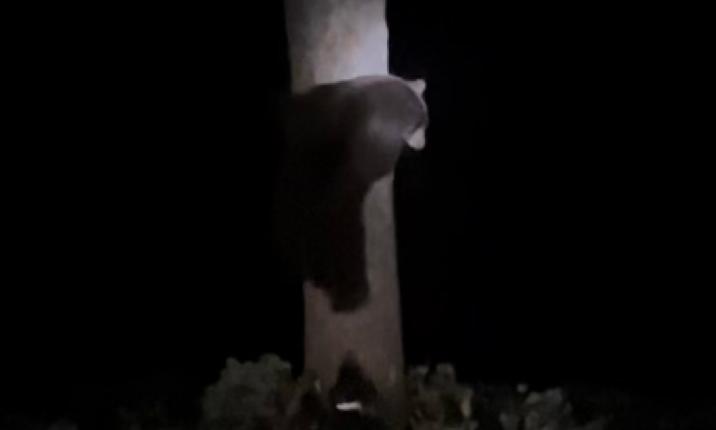Sheriff Recaps the Search for Helen Freesh
November 9, 2023
Sheriff Mike Fisher gave a presentation at this week’s Board of Supervisors meeting in Downieville on the Search and Rescue operation after the disappearance of Helen Freesh from a Goose Lake campsite in June. Freesh is a 69-year-old with advanced Alzheimer’s disease, and her family had taken her to Goose Lake as a final opportunity to go camping. When the family awoke the next morning, they found Freesh had left the campsite, leaving behind her shoes and jacket. The Sheriff’s Office received a call at about 8 o’clock on Saturday, June 17th, and Search and Rescue operations began immediately. The Sierra City Fire Department, Sierra County Deputies, and a California Highway Patrol helicopter were all dispatched as a hasty response team. Marin and Nevada County Search and Rescue teams were called for mutual aid within 30 minutes of Sheriff Fisher being notified of the situation. Speed was imperative due to the cold night temperatures in the 30s, especially considering the missing subject’s lack of warm clothing. Nevada County established an “Incident Command Post” (a van equipped with a large TV, maps, and communication equipment) as a central command station to direct search operations. Each day was considered an “Operation Period,” the first of which established search grids surrounding the campsite, which were manned by a primarily volunteer force. Communications became problematic quickly, with the winter snow having caused damage to a radio repeater installed on a mountain ridge, rendering it inoperable. No significant clues as to Freesh’s whereabouts were found on the first day of searching. The Incident Command Post was moved on the second day to the Gold Lake boat ramp parking lot, where the largest volunteer group of the weekend, numbering 68, gathered before searching an expanded area. During the day’s search, a bare footprint, which had a high probability of being made by a human, was found in mud south of Freesh’s campsite. The find caused a shift of resources towards the south and influenced search grids for the next day to focus in that direction. Freesh’s chances of survival grew dimmer with two days having passed, but search operations continued strong on Monday, June 19th. The search area again focused south of the location where Freesh was last seen. On Monday afternoon, however, a National Guard helicopter looking for a bear in the area spotted what they perceived to be a human leg in the forest and then, when circling back, saw Freesh sitting up in a ravine. She was found north of the campsite, just 100 feet from the edge of a previously searched grid. Freesh was immediately hoisted by a CHP helicopter and discovered to be relatively healthy. She was flown directly to Renown Hospital in Reno, where she was released the next day. The search process was informative for Sierra County Search and Rescue, and though ultimately successful, it revealed notable flaws and inefficiencies that could be eliminated for future searches. Sheriff Fisher noted that communication issues with National Guard helicopters and volunteers had plagued efforts. Additionally, the clue of the bare footprint found south of the campsite caused the operation to fixate southward when resources might have been better spent elsewhere. Sheriff Fisher made a point of thanking the volunteers from a laundry list of counties that came to aid the search without question or delay. The Sheriff also profusely thanked local businesses, including Pizza Factory, Los Dos Hermanos, Smithneck Farms, Farmhouse, and the Sierraville Gas Station, for providing meals. In other news… The President and CEO of the Rural County Representatives of California (RCRC) organization, Patrick Blacklock, gave a presentation on its role in supporting the smaller, rural counties of the state. Blacklock was introduced by Supervisor Adams, who is Sierra County’s long-time representative in the organization. Blacklock stressed RCRC’s ability to give a voice and platform to counties whose interests might otherwise be overlooked on the state and national levels. RCRC also serves as an umbrella for several smaller organizations, one being Golden State Connect Authority, which is endeavoring to bring broadband internet access infrastructure to Sierra County. Another is Golden State Finance Authority, which provides down payment assistance to homebuyers in member counties. So far, just five individuals or families have taken advantage of the program in Sierra County since 1993. Search and Rescue workers find a bare footprint in the mud
Search and Rescue workers find a bare footprint in the mud Freesh being hoisted by CHP helicopter before transport to hospital
Freesh being hoisted by CHP helicopter before transport to hospitalRCRC President Outlines Services
Mark Helm Honored by Resolution of Appreciation
 Board Chair Sharon Dryden congratulates HelmMark Helm retired on Tuesday from his Department of Public Works position as Assistant Plant Manager. Helm started at Public Works as a Part-Time Extra Help Laborer and was promoted through multiple levels of Plant Maintenance Worker before finally being promoted to Assistant Plant Manager. Helm received high praise from Public Works Director Bryan Davey, members of the Board, and many county workers and community members who attended to express support and appreciation for his hard work and professionalism.
Board Chair Sharon Dryden congratulates HelmMark Helm retired on Tuesday from his Department of Public Works position as Assistant Plant Manager. Helm started at Public Works as a Part-Time Extra Help Laborer and was promoted through multiple levels of Plant Maintenance Worker before finally being promoted to Assistant Plant Manager. Helm received high praise from Public Works Director Bryan Davey, members of the Board, and many county workers and community members who attended to express support and appreciation for his hard work and professionalism.
Featured Articles

Two Plead Guilty to Poaching and Animal Cruelty Charges →
December 30, 2025
Two men face penalties for illegal hunting activities in Sierra County.
Fish and Wildlife Plans to Collar More Deer, Elk, and Wolves →
December 30, 2025
DWR Conducts First Snow Survey of the 2025-2026 Season →
December 31, 2025
Storms Bring Heavy Rainfall and Local Disruptions →
December 22, 2025
Sierra Hardware Plans Extensive Repairs After Flood Damage →
December 8, 2025
